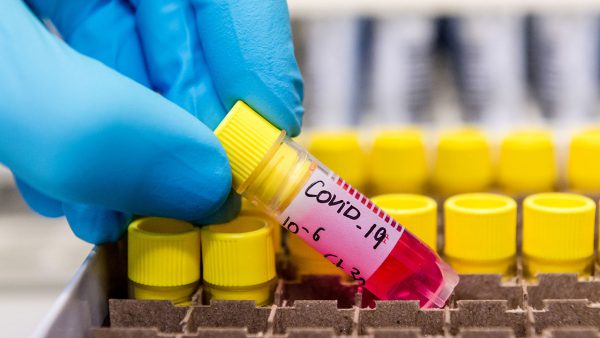CHIANG RAI, 19 May 2020: Every day we are bombarded with new information on the Covid-19 disease and after almost five months since the first cases were reported in China are we any closer to getting a handle on how the SARS-CoV2 virus behaves?
In daily news briefings, experts refer to the crucial catchwords that will lead to victory. They are tracing, tracking and testing, but few details are presented on how these words will help us as we move from lockdown to new normal behaviour.

Travel executives are understandably cautious about the effectiveness of national lockdowns in the fight against Covid-19. Some argue the draconian measures will have a more deadly impact on lives and a nation’s economy than the disease itself. But for those who have lost loved ones that offers little comfort. Short of having a course of treatment that culminates in a cure or a vaccine to shut down the virus before it can attack the lockdown emerges the only reliable tools at our disposal.
As the lockdown phase comes to an end across Southeast Asia information gleaned from contact tracing could help us all move forward and reopen our travel businesses while understanding and reducing risks.
A report in Bloomberg last week points to the importance of contact tracing that is now supplying “real-world data that shows how the disease spreads. The latest studies based on real data are a “big advance” over earlier simulations and models based on hypothetical scenarios.
The studies are mainly based on data from China, Singapore, Taiwan, and to a lesser extent the US and they point to the importance of contact tracing, which may turn out to be humanity’s greatest strategy for fighting the Covid-19 pandemic, says Bloomberg.
Studies based on contact tracing data show “spending time dining together, using public transport,” might risk spreading the disease, but “going to a market briefly, for five minutes or a transient encounter while you walk or run past someone, are now seen as low risks.”
Contact tracing data helps us reduce or avoid the risk and enables us to move to a new normal that gives us a chance of economic survival.
Covid-19 will be with us for some time to come, so we need more practical information gleaned from contact tracing data. It’s not enough for governments to order us to comply with certain requirements or restrictions. We need an explanation and demand clarity. The call for facts based on science probably explains the clamour of 11 million views when Erin Bromage, a biology professor at the University of Massachusetts, Dartmouth, posted his blog.”The Risks – Know Them – Avoid Them.”
“People think if you get exposed, you automatically get sick or become infectious, he explains. But even people exposed to sick family members in their homes don’t always get sick.
“Sharing a home or office does make transmission more likely, since the length of exposure matters as much as distance from other people. People passing by you in a supermarket are unlikely to infect you.
Outdoor environments appear much safer as well. In one study, which followed hundreds of cases, all but one transmission occurred indoors.
“I’d like people to stop wasting mental energy on the wrong things,” Bromage says. “To stop worrying about outdoors and bike riders since it’s such a low risk.”
Bromage doesn’t think strict lockdowns have to remain until we get herd immunity or a vaccine. However, he would like to see businesses use the data available to restart without fueling major outbreaks. He sees hope for restaurants and hair salons in the new normal, and is advising businesses on how to minimise exposure, Bloomberg reported. His advice went viral in days clocking more than 11 million views. Worth a read.
The Risks – Know Them – Avoid Them
“It seems many people are breathing some relief, and I’m not sure why. An epidemic curve has a relatively predictable upslope and once the peak is reached, the back slope can also be predicted. We have robust data from the outbreaks in China and Italy, that shows the backside of the mortality curve declines slowly, with deaths persisting for months…“
For the full report visit
https://www.erinbromage.com/post/the-risks-know-them-avoid-them
About the author
https://www.erinbromage.com/post/about-the-author-professor-erin-bromage







